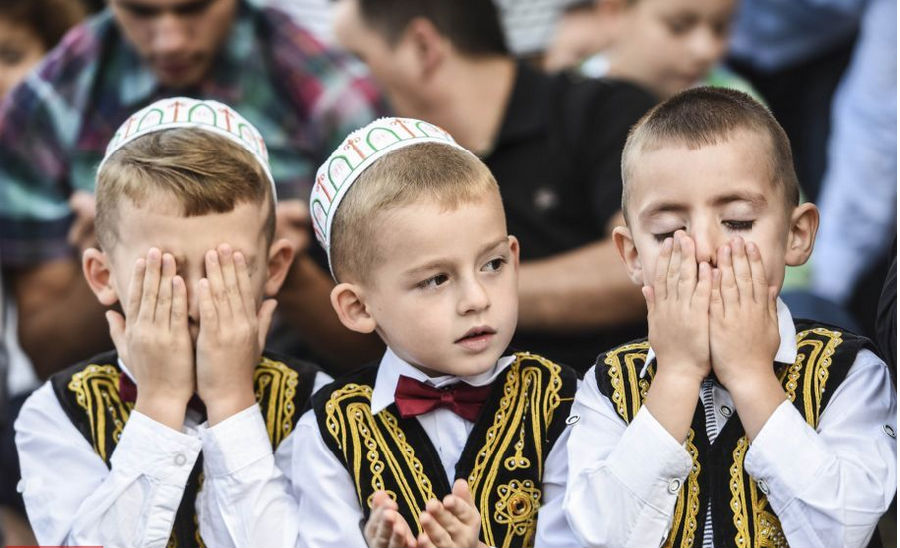割禮在德國
Incisive arguments
激烈的爭辯
A row over a ruling that circumcision for non-medical reasons is a crime
法院對出于非醫療原因實行割禮構成犯罪的裁定引發爭議
The parents, both Muslims, wanted their four-year-old son to be circumcised. They found a Muslim doctor to do the operation. But there were complications, and the boy ended up in hospital. A prosecutor accused the doctor of injuring the child, and the case went to court in Cologne. The court decided that, although the doctor was innocent, circumcising an infant fornon-medical reasons violates Germany’s constitutional protection of every person’s bodily integrity—and should thus be a crime.
一對穆斯林的父母想讓他們四歲的兒子接受割禮,他們找來了一位穆斯林醫生做手術。然而,男孩因手術后并發癥最終被送往醫院。檢察官以傷害孩童罪指控醫生,并將此案訴諸至科隆法院。法庭認為,盡管醫生是清白無辜的,而其在非醫療原因情況下對嬰幼兒實施環割術的行為,違反了德國憲法中對公民人身完整的保護,綜上理由,法庭判斷醫生的行為構成犯罪。

Cue the sort of controversy Germany hates most, one that offends Jews as well as Muslims. As it happens, the movement against circumcision is spreading, from California, where “intactivists” have tried to ban it, to Israel, where some parents now optfor brit shalom (the “covenantof peace”) as a ritual alternative. But the Cologne verdict breaks new ground. Sweden has a law setting medical rules over who may conduct male circumcisions.
要知道,德國人最討厭這種既冒犯猶太人,又得罪穆斯林的宗教爭端。無獨有偶,反割禮運動正從加利福尼亞蔓延至以色列——加利福尼亞是“反割禮分子”試圖取締割禮的活動陣地;在以色列,一些家長如今選擇用“命名禮”(“和平契約”)來替代割禮儀式。然而科隆法庭的裁決卻是別出心裁。瑞典已立法對男性割禮的實施人員制定了醫療準則。
The outrage over the Cologne ruling was immediate and immense. Dieter Graumann, president of Germany’s Central Council of Jews, asserted that the verdict, if it is upheld, would make Jewish life in Germany,just as it is blooming again, practically impossible.
科隆法庭的裁決隨即引發了公眾的強烈憤慨 。德國猶太人中央委員會主席迪特爾·高曼肯定的說,猶太人正試圖重回德國,倘若法院維持原判,猶太人幾乎不可能再在德國生活。
Both sides have arguments. On one hand, Germany’s constitution, written after the second world war to prevent any repeat of Nazi horrors, assures the rights of parents and of religious freedom. But on the other hand, it guarantees the physical inviolability of every person. The court felt that the boy’s right to inviolability trumped the religious and parental rights of his mother and father.
辯論雙方都有理由。一方面,二戰后制定的德國憲法旨在防止任何形式的納粹復蘇,確保父母的權利以及宗教自由的權利。而另一方面,憲法又保護每位公民的人身不受侵犯。法院認為,男孩人身不受侵犯權要高于宗教信仰,高于其父母享受的父母權利。
Holm Putzke, a law professor in Passau who wrote an essay on the topic in2008, says there would be no controversy if parents waited for their sons to come of age (14 years in religious matters) so that the young men could decide for themselves whether to be circumcised. But he adds that it is wrong to make an exception for involuntary male circumcision when female circumcision is seen as barbaric. And he maintains that arguments which lean on tradition alone are inadequate, for the same reason that tradition cannot, nowadays, justify polygamy or footbinding.
帕騷的法律教授霍爾木·普茨克曾在2008年就此話題撰文一篇,他在文中稱,如果父母們能等到兒子們成年時(宗教規定為14歲)行割禮,那么年輕人便可以自行選擇是否接受割禮,這自然不會引發任何爭議。但他又補充道,在女性割禮被視作殘暴行徑的情況下,容許對男性實施非自愿割禮是錯誤的。他斷言,在當今社會,人們無法以傳統作為實行一夫多妻制或是裹小腳的理由,同理,那些僅僅靠傳統為論據是論證是站不住腳的。
Muslim theology might, in theory, allow for some flexibility in the age of circumcision. The Jewish Torah, however, is inconveniently specific: God told Abraham to circumcise his heirs on the eighth day. That timing is non-negotiable, says Mr Graumann. He wants the German Bundestag to step in with a statute to clear up any doubts or anxieties.
理論上講,伊斯蘭教教義對受割禮年齡的調整上略為靈活。然而,猶太律法則明確規定:神吩咐亞伯拉罕,在其子嗣出生第八天時為他們行割禮。在這個時間上是沒有商量的余地,高曼先生說。他希望德國眾議院介入此事,通過法令來澄清對割禮的一切質疑或擔憂。 翻譯:王葭葦












